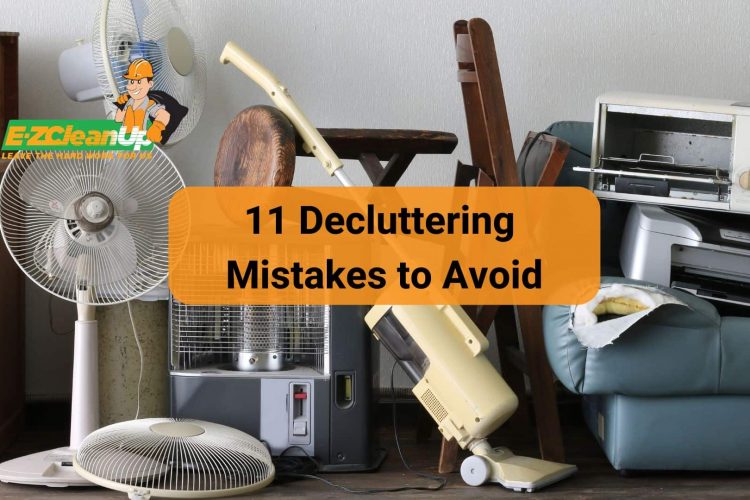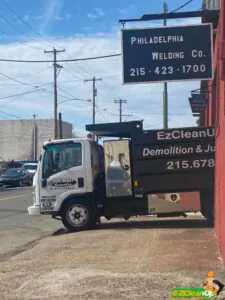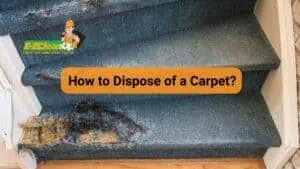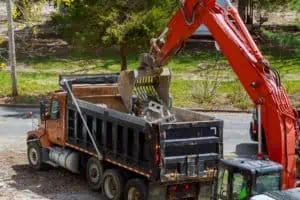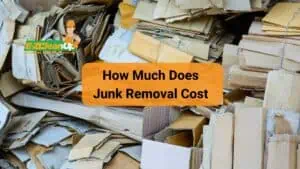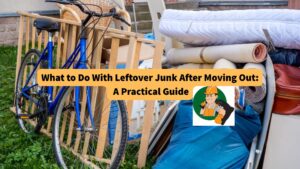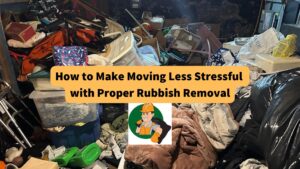Streamline decluttering by avoiding rushing, managing emotional impacts, and simplifying systems. Embrace mindful organizing, establish maintenance routines, promptly dispose of items, respect others’ belongings, and release ‘just in case’ items for a clutter-free environment.
If you’re ready to bring back organization to your life, it’s time to learn from these 11 decluttering mistakes to avoid.
Mistake #1: Rushing the Process
Avoid the urge to declutter everything in one go, which can lead to burnout and unfinished tasks. It’s crucial to approach this process with a strategy that emphasizes gradual, manageable steps rather than a wholesale overhaul in a single session.
This approach helps maintain energy and motivation, making it more likely that you’ll complete your decluttering goals effectively.
Key Strategies to Avoid Burnout While Decluttering
- Start Small: Begin with less demanding areas or categories where decision-making is simpler. This could be a single drawer or shelf, rather than an entire room.
- Set Realistic Goals: Define what success looks like for each session. Maybe it’s clearing out one area or sorting through a particular category of items.
- Schedule Breaks: Allow time to rest and reflect on your progress. This helps to recharge your mental and physical energy.
- Create a Flexible Schedule: Instead of a rigid timetable, adapt your decluttering efforts to how you feel and what else is happening in your life. If you find your energy waning, it might be a signal to stop and continue another day.
Mistake #2: Neglecting Emotional Impacts
Decluttering isn’t just about organizing physical items; it often involves dealing with complex emotions. It’s common to feel a strong sentimental attachment to items, especially those associated with significant life events or loved ones.
Understanding that it’s normal to feel hesitant or sad about parting with these items can prepare you for the process. Engaging in emotional decluttering, like journaling your thoughts and feelings, can provide clarity and ease the burden.
Guilt often arises from disposing of items that were gifts or costly investments that were seldom used. To combat these feelings, focus on the benefits of making space and the potential joy these items could bring to others if donated.
It’s important to focus not only on the challenges but also on the positive emotional outcomes of decluttering. Creating a tidier space can lead to increased energy, reduced stress, and a greater sense of control and satisfaction in your environment.
Mistake #3: Overcomplicating Systems
Simple and sustainable organizing systems are more effective than complex ones that are difficult to maintain. Here are some tips on how to embrace simplicity when organizing:
- Prioritize Decluttering Before Organizing: By removing unnecessary items first, you simplify the organizing process and prevent the common pitfall of merely rearranging clutter.
- Function Over Form: Choose storage containers that fit your needs and make the items you use most accessible.
- Utilize What You Have: Before purchasing new organizing tools or containers, assess what you already own. Many times, suitable organizing solutions can be found at home without the need for additional purchases.
- Keep It Manageable: This might mean setting up fewer categories or using broader classifications for items, which can make the system easier to keep up with over time.
Mistake #4: Ignoring the Importance of Routine Maintenance
Decluttering is an ongoing process, not a one-time event; regular upkeep prevents re-cluttering. Establishing a routine that integrates regular decluttering practices ensures that spaces remain organized and functional over time.
Here’s how to do it:
- Scheduled Decluttering: Incorporate regular decluttering into your weekly or monthly schedule.
- Immediate Action on Clutter: Tackle clutter as soon as it appears. This proactive approach helps maintain a clean environment and reduces the mental burden of seeing clutter pile up.
- Mindful Consumption: Be deliberate about what you bring into your space. Every new item should have a clear purpose or place in your home.
- Use of Functional Storage Solutions: Clear bins, labels, and thoughtful organization of items can dramatically reduce the time needed for upkeep and make it easier to keep everything in its place.
- Regular Reviews: Periodically review your possessions to reassess their utility and emotional value. This can coincide with seasonal changes or major life events.
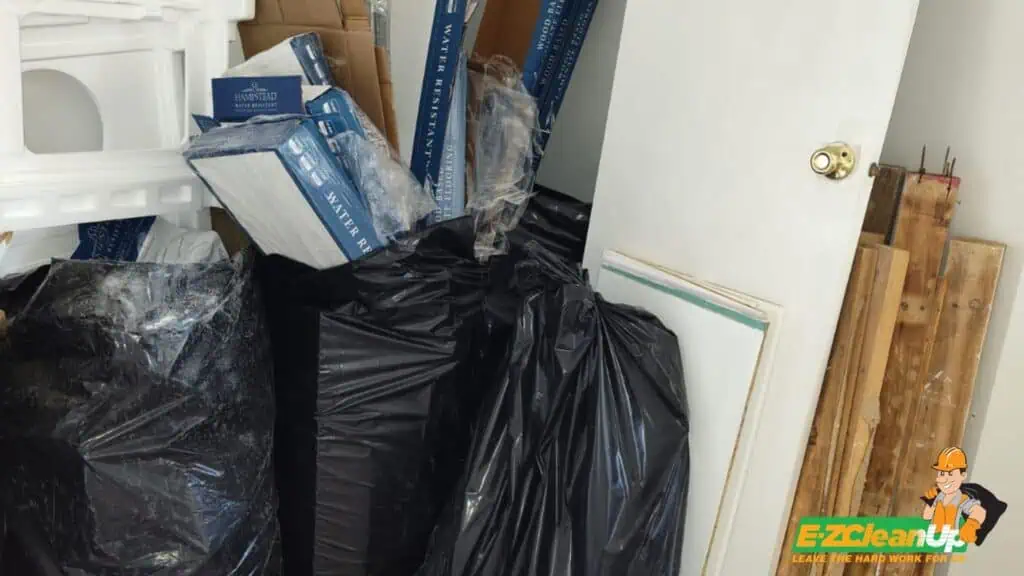
Mistake #5: Forgetting to Dispose of Decluttered Items Promptly
When decluttering, it’s crucial to immediately remove items designated for disposal or donation. Letting these items linger can lead to a buildup of clutter and might tempt you to rethink your decisions to part with them, thus negating your initial efforts.
Quick disposal helps maintain the cleanliness and order you’ve achieved. It prevents the common problem of items gradually migrating back into your living space, which can be discouraging and counterproductive.
There’s a big sense of relief and accomplishment that comes with physically removing unwanted items from your space. This act reinforces your decluttering decisions and promotes a more decisive mindset towards maintaining a clutter-free environment.
Practical Tips for Disposal:
- Sell: Utilize online marketplaces like Facebook Marketplace, Craigslist, or eBay to sell items quickly.
- Donate: Consider donating to local thrift stores or charities that accept used goods.
- Recycle: For items that aren’t suitable to sell or donate, look into local recycling options to dispose of them responsibly.
- Setting a Disposal Deadline: Establish a clear timeline for when items should be removed from your property. This could be immediately after a decluttering session or within a few days.
Mistake #6: Decluttering Items That Belong to Others
When decluttering, it’s crucial to consider the ownership of items, especially when they belong to others in your household or are left by someone who has passed away. Handling these items thoughtfully can prevent conflict and ensure that emotional bonds are respected.
Engage in open discussions with family members or roommates about items that may not exclusively belong to you. This includes shared items or those with sentimental value to others. Clear communication helps in making joint decisions and can often lead to more agreeable outcomes.
Recognize the sentimental value that items may hold for others. If you’re unsure about a particular item, ask questions that help understand its significance, like “How does this item add value to your life?” This approach not only shows respect but also aids in making thoughtful decisions about whether to keep, discard, or donate these items.
It’s also important to establish clear boundaries about what can be decluttered. Items that you personally do not use but that belong to others should be discussed and agreed upon before taking any action.
Mistake #7: Holding Onto Items Out of Guilt
Let go of items you keep only because you feel guilty about discarding them; focus on keeping what truly adds value to your life. Recognize that guilt often stems from emotional attachments or perceived obligations.
For example, feeling that discarding a gift is an insult to the giver or worrying that you’re wasting money by letting go of seldom-used items.
Create a memory, not clutter. Sometimes, taking a photograph of a sentimental item before parting with it helps preserve the memory without keeping the physical object. This way, you retain the emotional connection without the physical clutter.
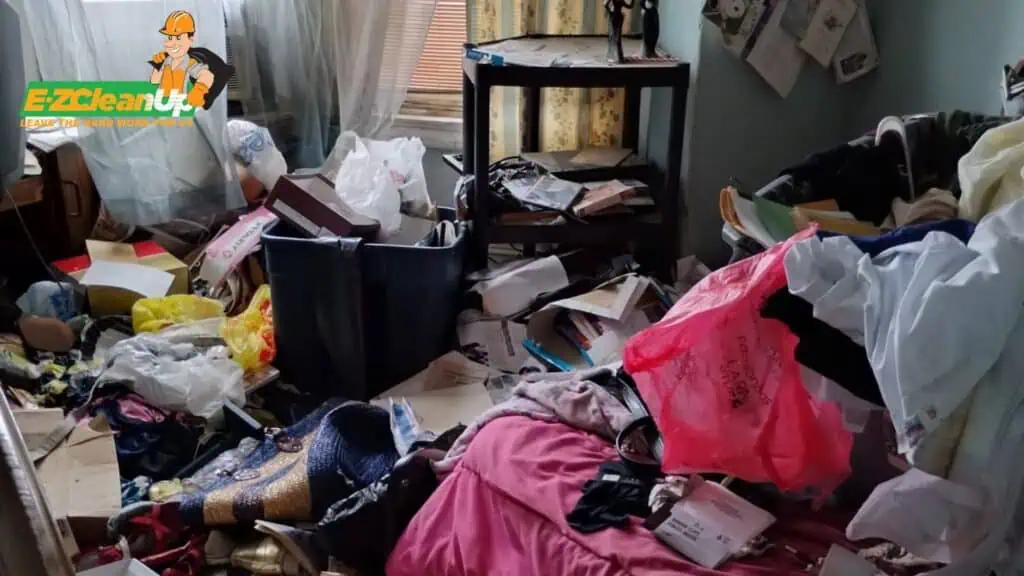
Mistake #8: Underestimating the Need for a Clear Starting Point
Initiating the decluttering process with fewer sentimental items is a strategic move that can significantly enhance your efficiency and confidence. This approach allows you to ease into the more emotionally taxing decisions that come with handling cherished possessions.
Starting with less sentimental items, such as everyday household goods or generic decor, provides quick wins. These initial successes can boost your confidence and establish a productive rhythm for tackling more challenging categories later on.
As you progress from less sentimental to more emotionally charged items, you sharpen your decision-making abilities. This practice prepares you for the complexities involved in sorting items with significant emotional attachments.
Mistake #9: Lacking a System for Handling Paper Clutter
Managing paper clutter efficiently requires a structured approach to ensure that paperwork does not accumulate into unmanageable piles. Here are some key strategies to keep your paper clutter in check:
- Daily Processing: Designate a specific area, such as a small desk tray or a designated spot on your entryway table, to collect all incoming documents. Sort these into categories like ‘to file’, ‘to shred’, and ‘immediate action needed’ to avoid buildup and ensure everything is addressed in a timely manner.
- Go Digital: Reduce physical clutter by switching to digital documents wherever possible. Utilize services like Google Drive or Evernote to store digital copies of important documents, which can also be easily accessed from anywhere.
- Regular Decluttering Schedule: Set aside a regular time each week or month to go through your paperwork. This routine helps in maintaining a clutter-free environment by ensuring that only necessary documents are kept.
Mistake #10: Not Utilizing External Help When Needed
Bringing in external help for decluttering projects can provide many benefits. They can enhance the efficiency and emotional ease of the process.
Friends and family can offer new viewpoints on your possessions. They can help you decide what’s truly important to keep. They might remind you of an item’s lack of use or suggest creative ways to repurpose or reorganize things that you hadn’t considered.
Having someone to help can also increase your motivation. The presence of others often creates a sense of accountability and can make the task feel less overwhelming.
Help can also come in other forms, like getting the services of a professional junk removal company, like us at EZ CleanUp. We can haul away your clutter, big or small, before you can even think of backing out of your plan.
Mistake #11: Clinging to ‘Just in Case’ Items
Holding onto items “just in case” you might need them someday is a common clutter culprit that can overwhelm your living spaces with unnecessary stuff. To effectively reduce this type of clutter, consider these practical strategies:
- Evaluate Realistic Usage: Reflect on the actual use of items you’re keeping “just in case.” Often, these items are rarely used. A helpful approach is to apply the “one-year rule,” where you discard items that haven’t been used in the past year, as these are unlikely to be needed in the future.
- Address Emotional Attachment and Anxiety: Address these feelings directly by employing mindfulness and grounding exercises, which can help reduce the perceived need to hold onto things for security reasons.
- Use the 20/20 Rule: A practical rule to follow is the 20/20 rule, which suggests that if an item costs less than $20 and can be replaced within 20 minutes, it should not be kept just in case.
- Digital Alternatives: For items like documents, photos, or receipts, consider digitizing them. This not only clears physical space but also ensures that you have access to these documents without the physical clutter.
- Designate Storage Limits: Set clear boundaries for how much space you’re willing to dedicate to storage. This can help you make more conscious decisions about what to keep and prevent overaccumulation.
- Maybe Box Technique: If you’re unsure about letting go of certain items, use a “maybe box.” Place questionable items in the box and store them out of sight. If you don’t need anything from the box within a set period, such as three to six months, you can safely discard those items.
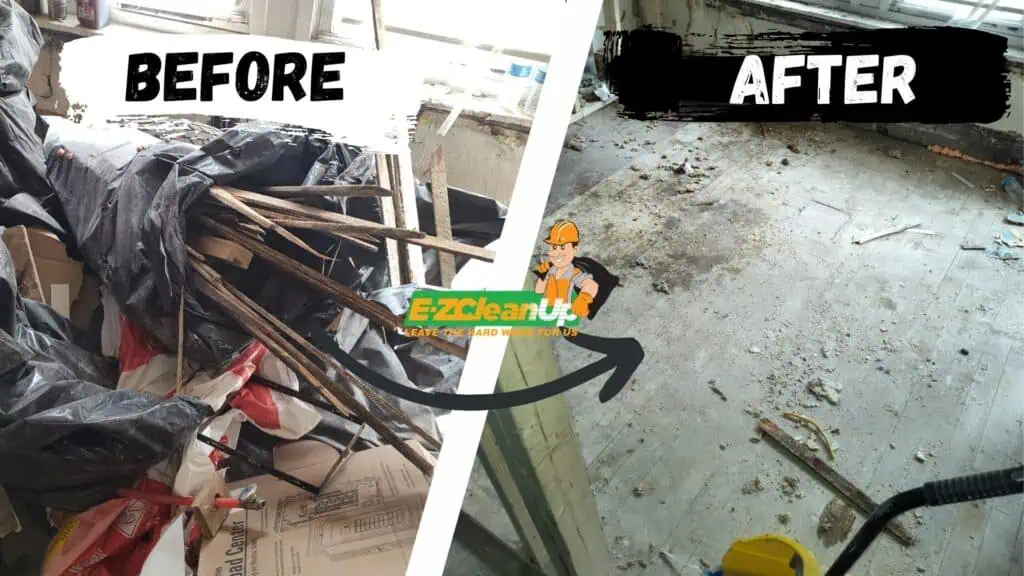
Cleanup Made Convenient
Efficiently managing the disposal of decluttered items is often overlooked. This leads to unnecessary clutter reformation. Whether it’s old furniture, electronic waste, or construction debris, EZ CleanUp has the resources and expertise to handle it all.
Our licensed and insured services in Philadelphia provide peace of mind and ease the burden of post-decluttering cleanup. We ensure that your decluttered items don’t just shift locations but are disposed of properly.
Ready to clear out the clutter? Contact us and let EZ CleanUp take care of the mess.

